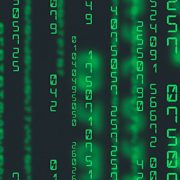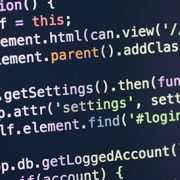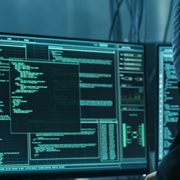Is Anti-Virus Software Necessary?
This question seems to come up every so often, usually from people whose systems were recently infected by the latest exploit. They feel that since they were infected even though they had an anti-virus (AV) program on their PC, the AV was not helping them and therefore not necessary. They are wrong.
It is not reasonable to expect any security program to block 100% of attacks. As you’re reading this, someone is creating a new variant of an existing virus or a new malicious program altogether and they are popping up at an alarming rate.
Just the other day, CIO reported that a new file-encrypting ransomeware program was created, that’s even more potent than Cryptolocker. The creator of this program (called “Critroni”), was even advertising it on criminal forums!
Last week, we posted an article called “How To Tell If An Email Is Bogus” because of an E-ZPass Phishing email that was going around tricking people into clicking an infected link and taking down their entire system. The post showed readers how to tell when an email is a scam.
So, the answer is YES , anti-virus software is a very important and essential part of the IT security picture but should be used in conjunction with other security measures and good computing habits.
Not convinced? Well …
Before you dump your anti-virus program, consider the following:
- Panda Security reports that there were on average, 82,000 new malware threats per day totaling 30 million new strains in 2013. That’s a lot of security threats to contend with unprotected!
- Operating Systems (OS) are complex and expert hackers take special pride in exploiting little known, unpatched vulnerabilities. All operating systems are vulnerable: Microsoft, Apple, and Linux. Microsoft is targeted the most since it has dominant market share. But Apple users are now feeling the heat as hackers turn their attention to them as Apple rises in popularity.
- Users are the first line of protection, not AV software. Many infections are proliferated through email and trick people into clicking infected links. Good computing habits will reduce infection rates, but it is not enough. AV software is needed to clean infections that get through.
- Anti-virus software often doesn’t detect the very newest threats because security software companies are forced to play catchup with cyber-criminals. The new threat must first make its debut before security vendors can create definitions to protect against it. However, once discovered, anti-virus software is used to detect and remove them.
- Users who visit untrusted sites and unknowingly download malware onto their systems put their personal and company networks at risk. Infected websites exploit security flaws in browsers to download their payloads. Anti-virus software offers a layer of additional protection.
- Even though Microsoft gets a bad rap, the fact of the matter is that cyber-criminals also target popular third party applications such as Java, Adobe, and web browsers like Chrome and Firefox. Viruses are spread not only through OS flaws, infected websites and email, but through trusted and vulnerable third party applications. AV protection is essential in combating these exploits.
If you decide to shut off your AV, you will see a very significant rise in computer problems, like sluggishness, pop-ups, erratic behavior, etc. These may be annoying, but are just symptoms of the infection. Depending on the virus, personal and company information as well as that of your clients can be stolen. Very malicious malware can immobilize systems and wipe out data.
The steps you take to make your computing more secure hasn’t changed. They’re basic, but important:
- Always use updated anti-virus and anti-malware programs.
- Keep operating systems, third party applications, and browsers updated and patched.
- Perform frequent scans. XSolutions virus scans all managed machines on a daily basis.
- Never click on links or open attachments in emails from someone you do not know.
- Make sure you use strong passwords and never keep your password list on any document on your computer. Use a password manager like KeePass to store them securely.
- Do not disable the User Account Control (UAC) in Windows and heed its warnings.
- Never respond to email requests for passwords, personal, or financial information.
- Make sure your networks are secure, especially wireless networks.
- Businesses should use a Managed Services Provider (MSP) such as XSolutions to manage and maintain company networks.
There are many anti-virus programs on the market today. At XSolutions, we use Avast and Bitdefender. Both are award winning applications that defend systems with superior protection and performance. We highly recommend these solutions and use them at our company as well as for our own clients.
XSolutions is an Avast Partner specializing in volume licensing and pricing. Additional discounts are available for organizations in the Government, Healthcare, and Education sectors. Call us at (845) 362-9675 or email us for a quote.
Related articles:
How To Tell If An Email Is Bogus
Email – The Hacker’s Backdoor To Your System
7 Trends That Threaten Your Business
Bringing SMB IT Security Full Circle
The Weakest Link in IT Security
XSolutions is a Managed Services Provider (MSP) and provides 24/7/365 remote monitoring, scheduled workstation and server maintenance, Help Desk Services, Cloud & Hosted Services, Backup/Disaster Recovery, and Software Development. Call us at (845) 362-9675 and see how we can help your company.











